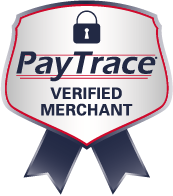Are you hesitating to begin your Search Engine Optimization (SEO) improvement project for your website? Lots of Denver clients hesitate when it comes to optimizing their site for Inbound Marketing because they aren’t sure what it means, what they should do and what outcomes to expect.
The most important thing to know about SEO is that the majority of your website traffic is coming from search engines (mostly Google, Yahoo and Bing) so you need to ask yourself if you can you really afford NOT to optimize your website to attract more search traffic?
SEO can usually be done very easily on most websites in a matter of a few weeks. It always involves five essential steps — none of which require a degree in engineering, and all of which are easy to understand.
Here’s how to optimize your website in Five basic steps:
1. Do “keyword” research to uncover what search words your prospects are using
Every SEO project should start here. You are looking for three things:
■Which keywords are your visitors searching for? Your website analytics can tell you (or your web programmer).
■Which of those keywords have a reasonable level of search volume, combined with a lower level of competition? Simply look at each page on your website and identify the best potential keywords for each.
(Google has several free tools to help you determine what the best keywords can be, and will help you focus in on those keywords that searchers are actually typing into Google.)
■Which keyword searches don’t yield a lot of “page one” (first page of search results) choices for what you’re offering? Type in to Google some of the keywords you have identified for your site, and see what results come back. In some instances, there will be very little local competition for those keywords — opportunity for you!
2. Optimize your Website Page URLs.
Choose one or two of your best keyword phrases to focus on for each page of your website. For each page, create a new page URL (your programmer will know what this is, or give us a call and we’ll help) that incorporates the most important keyword phrase for that page. Separate all words in the page URL with hyphens, and try to keep the page URL to 3 to 5 words.
3. Create “301 Permanent Redirects” from Any Old or Duplicate Web Pages.
This is really important! Google does not like duplicate content and will ding you for it. An easy way to see if you have any duplicate content is to create a list of any of your old page URLs that you are no longer using, and include any other page URLs that contain duplicate content. For each old or duplicate page URL, identify the new page URL to permanently redirect that traffic from.
Have your programmer create these 301 Permanent Redirects. Using a redirect will preserve the value of any incoming links to those old pages –but only when your programmer creates a 301 permanent redirect page-by-page (not just redirecting the entire domain name).
4. Optimize “Page Title,” “Meta Description,” “H1 Headline,” “H2 Subheadings”, and “Body Text”
Once you have selected one or two keyword phrases to focus on for each page of your website, here’s how to optimize each website page:
A. Place your primary keyword phrase in the early part of your Page Title and in the Meta Description. Your programmer can easily do this for you, or you may be able to do this if your website has a Content Management System (CMS) as a part of your site.
B. Put your most important keyword phrases in the early part of your main (H1) headline on each page. Have you programmer code one main headline on each page as an “h1″ headline. Use your keyword phrases early in subheadings on the page as well. Ask your programmer to code your subheads as “h2.”
C. Incorporate your most important keyword early in your first sentence, and then a few additional times throughout the page, including in the last sentence on the page.
5. Create Links between your Individual Web Pages
Create links within your text to other related web pages on your site. Be sure that the link appears on “anchor text” that contains keywords for the page you’re linking to.
That’s it! Five simple steps that you and your programmer can accompish in a short period of time.
Are there other SEO elements that you consider to be basic steps to optimize a website? Please leave a comment on what you would add to this post!
Not sure where to start? If you need some help optimizing your site, give us a call at (303) 357-5757.


